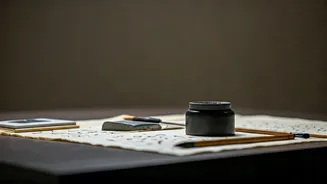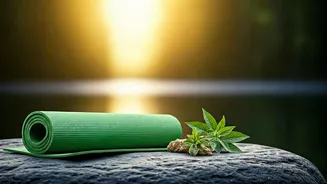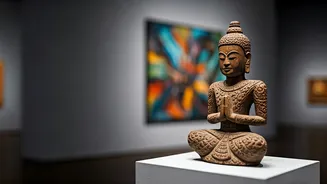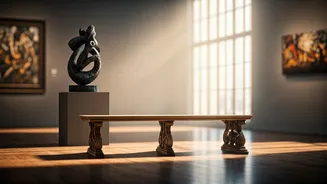Calligraphy Immersion
Calligraphy workshops in Japan allow participants to explore the art of writing with brushes and ink. These sessions typically start with simple strokes,
gradually progressing to writing words and phrases. Learning calligraphy provides insights into the aesthetic principles of Japanese culture, while also helping to understand its significance. Numerous workshops across Japan provide all the required materials like brushes, ink and paper. The instructors will guide participants, assisting in creating stunning characters, along with explaining the history and cultural meaning behind calligraphy. Moreover, the experience offers participants the opportunity to connect with a time-honored practice that has been an integral part of Japanese life for centuries. It is a creative outlet that also provides a calming and reflective experience. Participants will walk away with a deeper appreciation for this meticulous art form and the cultural values it represents.
Pottery Creations
Pottery workshops are immensely popular, particularly in pottery-rich regions like Kyoto and Arita. These workshops allow participants to shape clay into functional and decorative items under the guidance of skilled artisans. Through these sessions, participants learn about traditional pottery techniques passed down through generations. Workshops usually provide the clay, tools, and firing facilities. The instructors offer advice on various techniques like coiling, slab building, or wheel throwing. Besides, the process encourages creativity through personalized designs, as participants craft their unique pieces. The experience provides a hands-on understanding of ceramic art and offers a tangible connection to Japan's artistic heritage. These workshops cater to individuals of all skill levels, from absolute beginners to experienced crafters. Therefore, participants will not only gain a new skill, but also a treasured souvenir reflecting their creativity.
Tea Ceremony Rituals
Japanese tea ceremonies represent a meditative practice centered on values such as harmony, respect, purity, and tranquility. Participants attending these workshops learn about the history and philosophy of tea ceremonies. They practice the rituals involved in preparing matcha tea. The workshops offer a unique opportunity to experience this refined cultural tradition, which has been practiced for centuries. The experience provides an immersive opportunity to observe the precise movements, the selection of tea utensils, and the reverence with which each step is performed. Typically, a ceremony involves the preparation of matcha, followed by the consumption of tea and sweets in a peaceful setting. Workshops are frequently conducted in traditional tea rooms, which enhance the authenticity of the experience. Participants gain a deeper appreciation for the cultural values embedded in this time-honored tradition, fostering a sense of peace and reflection.
Kimono Dressing Art
Kimono dressing is a delicate art that demands skill and precision. Workshops throughout Japan offer lessons on properly wearing this traditional garment for different occasions. Participants study various kimono styles, accessories like obi belts and obijime cords. They also learn how to tie them securely without compromising comfort or elegance. The lessons often start with the basics, progressing towards more advanced techniques, so participants gain a comprehensive understanding of the process. Instructors will guide on how to choose the right kimono for the occasion and how to coordinate the accessories for an elegant look. Through this workshop, participants will develop a new skill and a deeper appreciation for Japanese culture. The workshop helps participants to understand the historical and cultural significance of the kimono. The ability to dress in a kimono provides an enriching cultural experience.
Ikebana Flower Art
Ikebana is more than just flower arranging; it expresses art and philosophy. Workshops teach participants how to create floral arrangements that reflect balance, harmony, and natural beauty. Guided by experienced instructors, participants explore different styles and techniques, while learning to appreciate seasonal blooms and their meanings within Japanese culture. Ikebana workshops often emphasize the mindful process of selecting flowers, leaves, and branches. The instructors give careful instruction on how to manipulate the materials in order to achieve the perfect balance and harmony. Participants learn to view the world through the language of flowers, understanding the emotions, seasons and events. The art form teaches a respect for nature and a deep appreciation for simple things. Besides, participants learn the techniques that they can apply when creating their own floral arrangements. This immersive experience results in an artistic expression and provides a deeper understanding of Japanese aesthetics.













